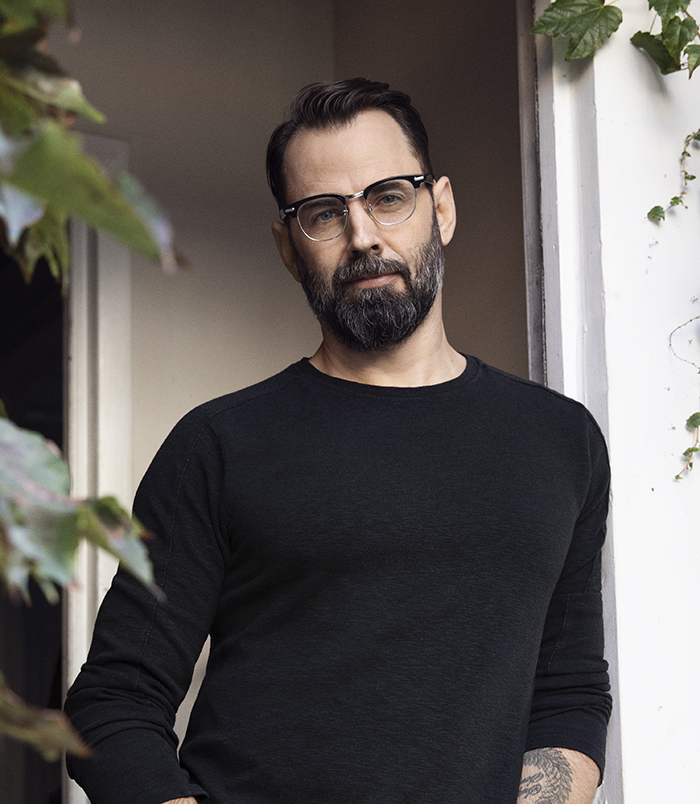None of us get out of this thing alive. I’m talking about life in general, not 2017 specifically. So then, if our inevitable end is the one human equalizer, why are Americans so precious about our approach to it? Over the past year, I’ve searched for that answer by exploring the science, mysticism, and culture that surrounds death in the podcast The Adventures of Memento Mori. The hypothesis of the show is this – if I can reconcile my mortality, then I’ll be freed to live a more deliberate and meaningful life. The problem is, of course, life keeps getting in the way.
When I tell people that I host a podcast on death a funny thing happens. At first, they lean back and look at me as if I’m wearing their T-shirt. After awkward beat, they lean back into me, closer than before and say “Really? That’s interesting. It must be a hard thing to do because nobody wants to talk about death.” Then, they immediately start talking about death.
Here’s the truth: People DO want to talk about it. In fact, I can say with confidence, Americans like talking about death in the right context. As I came to find out in my adventures, death is a conversation that needs permission to begin. The door needs to be opened by someone else. Nobody likes to start the conversation, but once the instigation barrier has been removed, people aren’t too precious about it in the least.
So as you’re gathered around this year’s cornucopia, I invite you to be the provocateur that starts the odd, yet endlessly fascinating conversation about how you plan on dying. Seriously, can you think of a more interesting Thanksgiving discussion than hearing all your friends and family describing to each other their last wishes? In case you have some doubts, here are four reasons why death will make the best ever Turkey Day table talk.
Lighter Than Politics
These are dismal days. The blues and reds are in their respective corners and ready to come out swinging in the name of civic discourse. Since there will be sharp objects on the table, how about we raise the political white flag, stay off twitter and step out of our irreconcilable echo chambers? Just for an afternoon. Undoubtedly, hearing the football game in the background, someone (ornery uncle) will start the conversation conflating NFL players protesting violated civil liberties with dishonoring the America’s military. This is your cue to politely steer the conversation to death.
YOU: I propose we change the dinner conversation to something a bit lighter.
UNCLE: Like what?
YOU: Well, would you prefer to be cremated, buried or something different altogether?
It’s Inclusive
Death comes to us all. If we can admit that, then what other possible dinner conversation can provide such inclusivity? You, me, and the French guy your sister brought are all going to die. Whether it’s your first Thanksgiving at your new in-laws, a non-American who doesn’t know what a pilgrim is, a grandparent who is being ignored in favor of the Snapchat or the black sheep stuck at the kids table (again) – EVERYBODY should have something to say and their wishes, opinions and feelings on death have equal merit.
You Have Witnesses
Death can bring a family closer together, but it can also just as easily break it apart. In being a conduit for death conversations, one of the most unfortunate and common topics people bring up with me is of families behaving badly when a member of their family dies. Estates, wills and funeral planning can bring out the worst in people. Sound familiar? And guess who’s oft to blame? That’s right – the person who died. This is because they don’t make their wishes clear to the family. In speaking of an unprepared will, Gene Newman from
Everplans.com puts it this way in our episode Plan on Dying, “They’re like ‘My family will get along fine. If they’re going to fight, then they don’t deserve any of my money,’ Okay, you’re the most trusting human being on the planet. Have fun with that thought … you might as well just throw them in a room with a short stick and say “Okay, whoever lives is walking out with my money.’ “
The benefit of discussing your last wishes at Thanksgiving dinner is that you’ll have a table of witnesses. Hearing it from the source can prevent years of anguish in your family.
Genuine Gratitude
In part, my hypothesis for reconciling my mortality has proved true. Hosting the podcast has actually deepened my awareness of what it means to be alive, because I’m much more clear about what it means to be dead. By sharing your last wishes with the people you love the most, you’ll naturally discover a sense of unfiltered gratitude. Then, during that otherwise awkward ceremony of everyone saying what they’re thankful for, instead of repeating the platitude you read on Instagram, you can simply say “I’m thankful to be alive.” Now pass the creamed corn casserole.
These conversations are challenging but they’re well worth it. You’ll most likely laugh, someone will cry, and I promise you you’ll discover something deeply rewarding about a person at that table.
Let us know how it goes. If you have a death conversation over Thanksgiving dinner please post a photo of it on Instagram and tag @remembertodie with the hashtag #thankfultobealive
Starter Questions:
What do you want to happen to your Facebook account?
Is your laptop off limits or can it be considered a visible part of your legacy?
Who’s the guardian of your children?
Who’s the guardian of your dog?
What do you want done with your frequent flyer miles?
Do you have a will and is it updated?
What’s your first song on your own funeral playlist?

